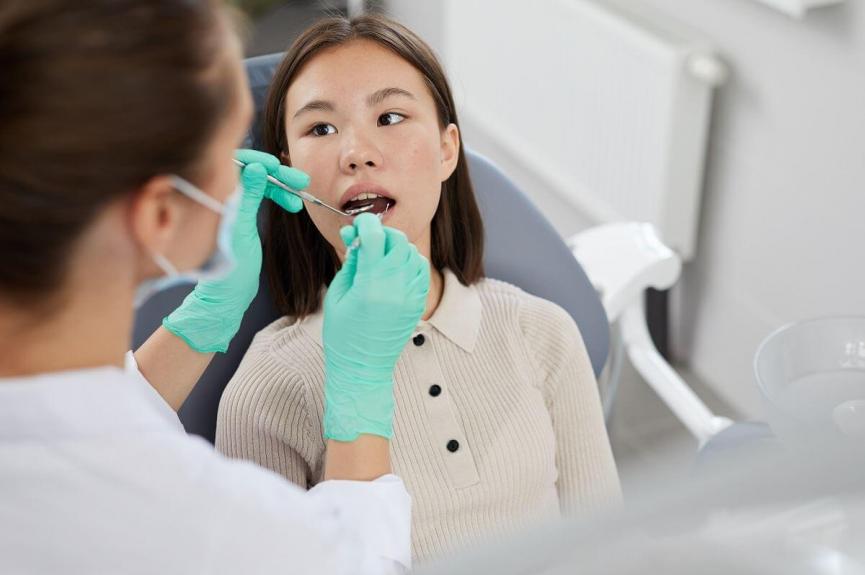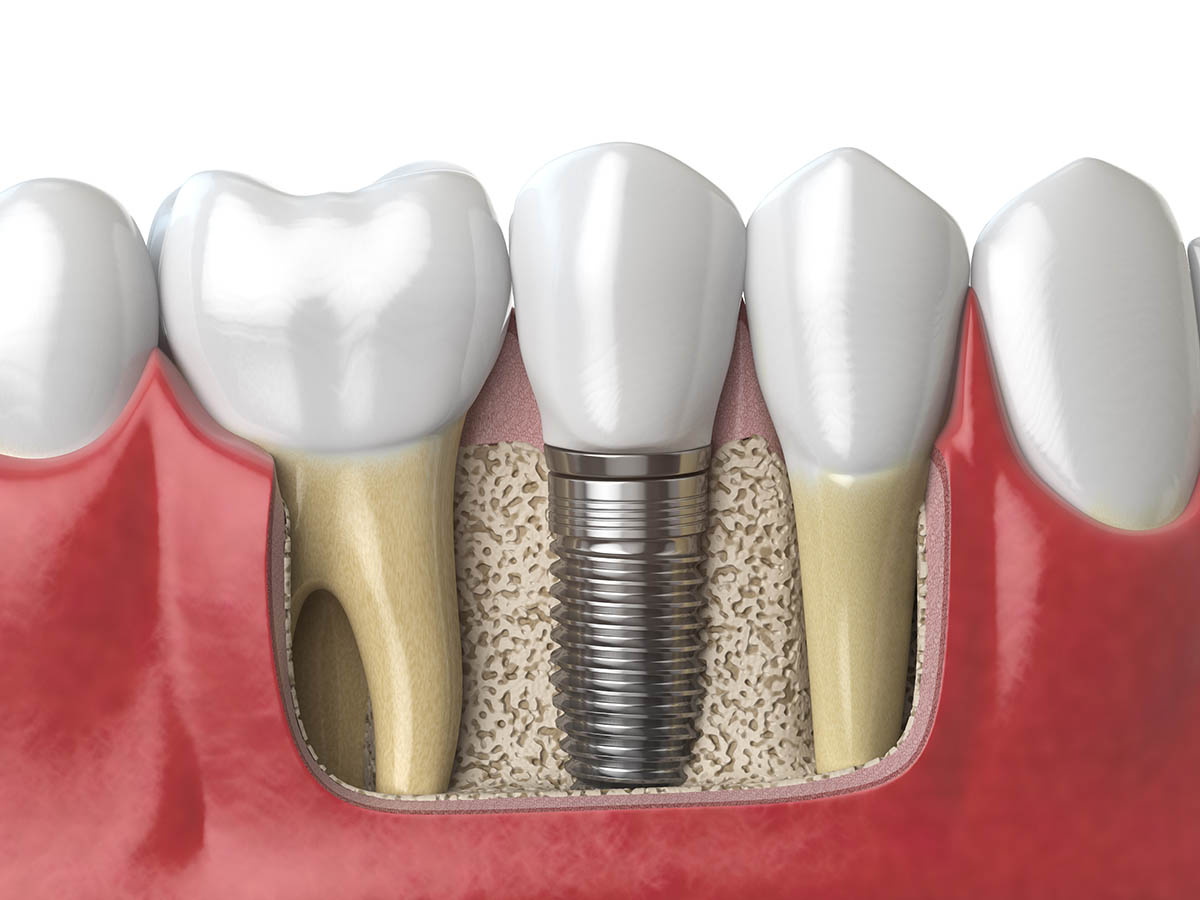
Price/Cost table
| Type | Price/Cost $SGD per implant/tooth |
| Standard dental implant | $4000 - $6000 |
| Dental implant placement (public) | $1600 - $1900 |
| Dental implant placement (private clinic) | $2000 - $4800 |
| X-rays | $80 - $120 |
| Dental implant Medisave claimable limit | up to $1250, generally around $950 |
This post will address what it is like to have a dental implant in Singapore if it is Medisave claimable, as well as how it will affect your life and budget. Unfortunately, tooth loss is not an uncommon occurrence these days despite the advancements in medical and dental care. Hundreds of people in Singapore face the challenges that missing teeth bring upon.
Anyway, If you don't want to read the whole article and are in a hurry to pick a dental implant specialist, just check our list of Singapore Dental clinics that offer such a service. If you are eager to know more about Dental implants keep reading.
Unlike in the past, when they had no choice but to stick with dentures and dental bridges, today patients are offered dental implant surgery, a more complex and effective procedure 1. It provides lasting support for fake teeth minus the discomfort, inconvenience, and speech problems that the above tooth-replacement options could cause.
If you stick around, you will learn the ins and outs of the treatment. Once you are finished, you will navigate away from the page equipped with the right knowledge. Read on.
What are Dental Implants?
Dental implants are small artificial prostheses, the purpose of which is to replace missing teeth. They contain three parts. The first one is the fixture. In a word, this is the thing that is surgically attached to the bone to act as the roots of the tooth. It looks like a screw. Once placed into the tissue, it leaves a gap in the bone and gum (in place of the missing tooth), which gets filled gradually during the healing process.
Next comes the abutment. This is a metal extender that serves to anchor the screw and the upper part of the implant, or the prosthesis. It is either a separate unit or it comes embedded in the fixture. This means in some cases the abutment is slid in the gums during an additional procedure after the healing is over. And in other cases, it is placed in the gums at the same time as the screw and everything comes together as an integrated unit.
The third part is called a prosthesis. This unit plays the role of a real tooth and is discernible when you open your mouth. Its purpose is to make chewing possible. The prosthesis, or artificial tooth, is made of ceramic or porcelain. To keep it in place, the specialists resort to cement or screws.
Type of Dental Implants: Removable vs Fixed Artificial Teeth
Although at their core, dental implants are designed to be bonded to the gums, there are removable units as well. They resemble dentures but are noting like them after all. With removable artificial teeth, you still have a fixture and abutment into the bone; however, instead of cementing a standard prosthesis to them, the doctor assembles a unit that snaps into place. It is easy to take it out and clean or even repair it.
With fixed dental implants, you are not offered the opportunity to remove your artificial tooth.
Advantages of Teeth Implants over Dentures and Bridgework
- Solid stability and support
- Comfortable
- Permanent - you don’t have to worry that you will need teeth replacement any time soon; with proper care, your implants can last 25 years and more
- Natural-looking - no one can tell you have dental implants since they look like real teeth
- Durable and convenient - unlike dentures, you don’t have to take your implants in and out so you can have a meal
- Facilitated eating - you can eat your favourite foods with no remorse
- Improved speech 2 - you won’t hear yourself slur the words as you speak because dental implants don’t tend to slip within your mouth like dentures
- No damage to neighbouring teeth - with bridges, you have to file down the neighbouring teeth so there is enough room for the crowns.
- A dental implant costs an arm and a leg in Singapore, but the good news is that the Ministry of Health might cover some of the expenses (check MediSave and your insurance plans for further details)
Disadvantages of Dental Implants
- Delayed bone healing
- Complex and time-consuming procedure
- Risk of infection
- Nerve damage
- Damage to teeth
Suitability of Dental Implants in Singapore
Your dentist will offer dental implant treatment if you fit most of the following criteria:
- You hate the idea of wearing dentures or for some reason, you are unable to do so
- You present with healthy oral tissues and have no conditions that might interfere with the healing capacity of your bones
- You have more than one missing teeth
- You are looking to enhance your speech
In addition, it is important that you are not a smoker or that you put away the cigarettes for the time being (several months). You also have to be willing to completely devote yourself to the process and have patience because it takes a while for the gum and bone tissue to grow around the dental implant. Not to mention, alcohol is a big no-no.
Last but not least, you have to be an adult to undergo dental implant treatment. If your jaw is still growing, it will affect the results and may lead to a lot of problems in the future.
Planning and Preparation Process
Planning for dental implants might seem like light work but it is nothing like your typical dental procedures. Being more complex than a simple dental filling, it involves a number of different specialists. This may include a periodontist (who deals with gum diseases), an oral and maxillofacial surgeon (who knows a lot about the jaw), and ENT specialists (ear, nose, and throat), and finally a prosthodontist 3. The latter is a medical practitioner who is skilled at designing artificial teeth.
As you can see, there is a lot to do and you have to be patient. You will be subject to multiple dental exams and procedures.
Exams and medical history
For starters, they will take 3D images of your mouth and do X-rays to obtain a clear picture of the state of your jawbone and teeth. With this information in mind, they will craft dental models of your teeth.
In the meantime, the main doctor who is in charge of your treatment will take your medical history. Let them know if you have any medical conditions, even if it is something that seems unrelated to the procedure. If you are taking any medications, speak up. You might have to ingest antibiotics before the dental surgery begins.
Consultation about dental implant surgery
Once all the facts are put into consideration, the specialists will piece together a custom treatment plan and give you a heads up about your dental implants.
You will have a thorough consultation to discuss all the steps as well as the possible anaesthesia options. Your dental care team will advocate for the use of general anaesthesia, sedation, or local anaesthesia depending on what your body can tolerate, the complexity of the surgery, and your personal preferences.
That being said, if you all arrive at a decision to go for general anaesthesia, it is wise to plan for a ride home post-treatment. Have a friend or relative come and pick you up from the clinic after the dental implant has been inserted.
Expectations of implant dentistry
This type of surgery is carried out in stages, which is why it can take months to reach the final phase. The process will involve doing a small part of the procedure and waiting for the wound to heal, and then everything repeats on and on. The success rate of dental implants goes as high as 98%.
Dental Implant Treatment

The procedure entails making a small opening into your gum, right where the missing tooth is, so they can have a good view of the bone. Then, they drill a few tiny holes into the bone where the metal post can grab onto it and stay secured in place. As mentioned earlier, the metal post is that part of the dental implant that acts as the root of your fake tooth and it makes sense that it goes deep into the tissue.
It is worth noting that even when you undergo dental implant treatment, the gap left by the missing tooth will still be present. Several weeks and even months will go by before the surrounding tissue grows into the item and everything binds together. In the meantime, you will receive a temporary denture that can be taken in and out during sleep and for cleaning. It is mostly needed for appearance.
The process of the jawbone growing and connecting with the artificial surface is called osseointegration. Once it takes place, it becomes a solid base for the implant and you no longer have to worry that it will fall off. At this point, you will also go back to the dentist’s office for your abutment treatment.
This is an additional surgical step that may or may not be necessary. It involves inserting a piece into the implant that will serve as the crown holder later on. Being a minor procedure, it is delivered in an outpatient setting with local anaesthesia.
Because the abutment can be attached directly to the post at the previous stage, some people will not need this additional procedure at all.
Bone grafting with tooth implants
Sometimes a procedure to transfer bone material from other parts of the body to the gums is initiated by the dental care team before the very implant surgery. It is necessary when the patient’s jawbone is too soft which can impact its ability to handle pressure during chewing or support the implant altogether.
In that case, the jawbone has to be rebuilt using external materials. One way to do the grafting is to use tissue from other parts of the body. It is the best alternative because it promotes good healing and it reduces the risk of infection. Another way to go is to use a synthetic bone graft to provide more stability to the dental implants about to be inserted.
If your dentist suggests bone transplantation, you have to arm yourself with patience. It will take several months for the new bone to grow and become strong enough to bear the weight of the dental implant and chewing pressure. And it is only after this that you can have the surgery. However, if you need minimal bone grafting, it may be possible for your medical team to do the transfer at the same time as the surgery.
Dental Implant Cost Singapore
As mentioned before, dental implant surgery can be quite a laborious procedure; this is why the price varies significantly based on complexity. A standard treatment runs between $4,000 and $6,000.
There is a difference between the bills in public hospitals and private clinics. If you stick with the former option, your implant placement alone will cost roughly $1,600-$1,900. Choosing the latter alternative instead will set you back some $2,000-$4,800. If you are looking for cheap dental implants in Singapore, it is best to settle for a public hospital.
Things that are not involved in the above estimates include dental X-rays ($80-$120), dental examination ($50-$150), surgical planning ($400-$800), intra-oral scans and tooth models ($300-$500), intravenous sedation ($800-$1,200 per hour), and much more.
Don’t forget that you will be prescribed medication after your implant treatment, which could be anywhere from $30 to $100.
For a full breakdown of the bill, you have to get in touch with the dental clinic you want to work with. They will tell you what you will be paying for.
Tooth Implant Cost in Singapore: Dental Implant MediSave
You are probably wondering whether your dental insurance covers some or all of the expenses regarding your dental implant surgery. And the answer is: yes but there are certain limits. Feel free to claim up to $1250 (usually $950) of the price from MediSave for insertion of a single unit and up to $450 for removal per unit 4.







